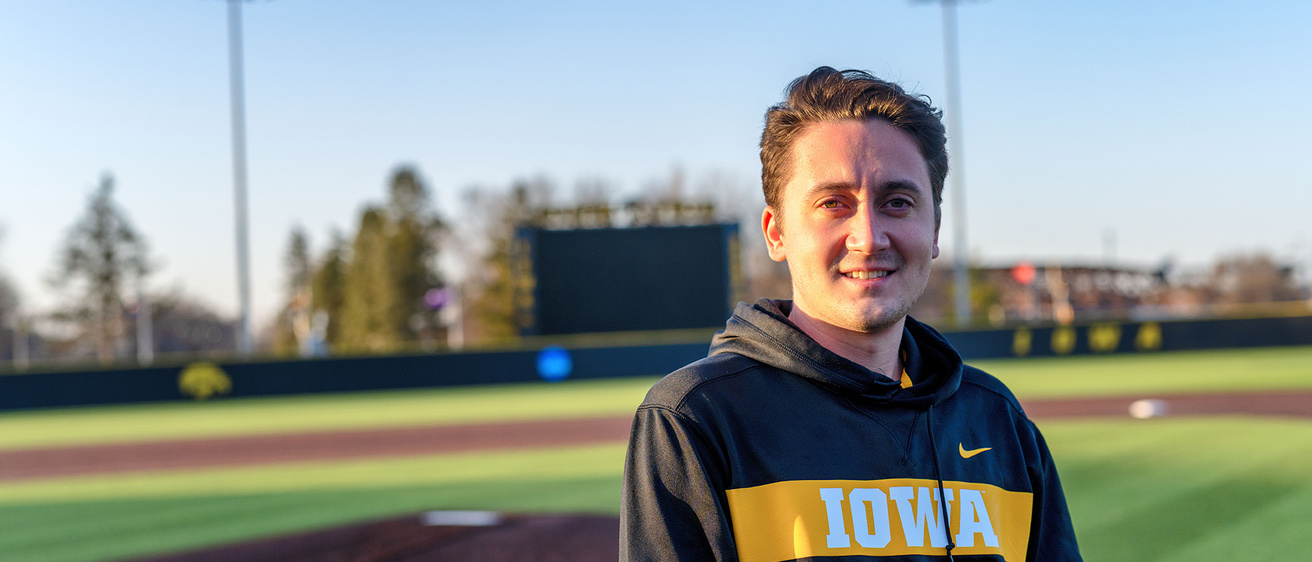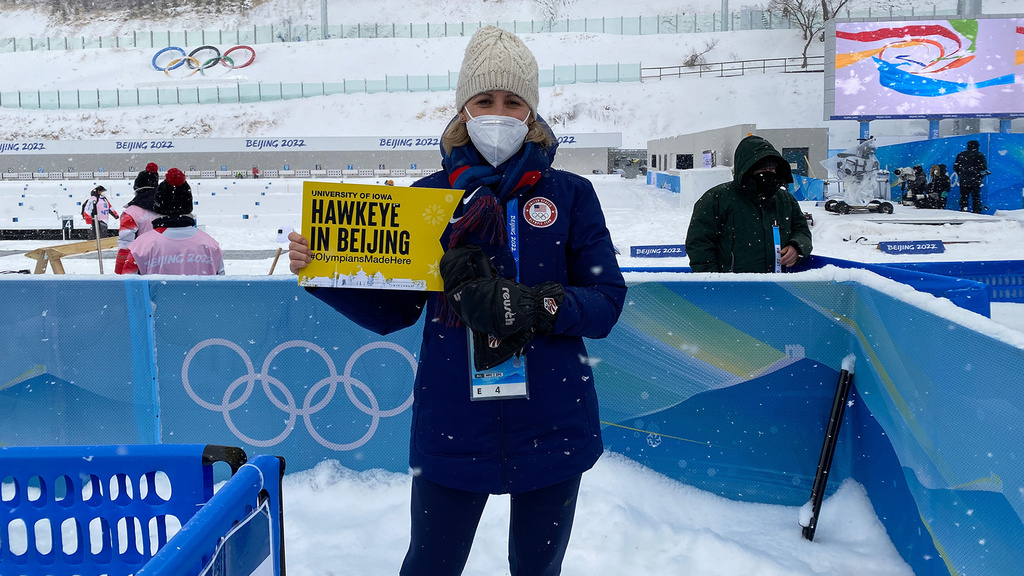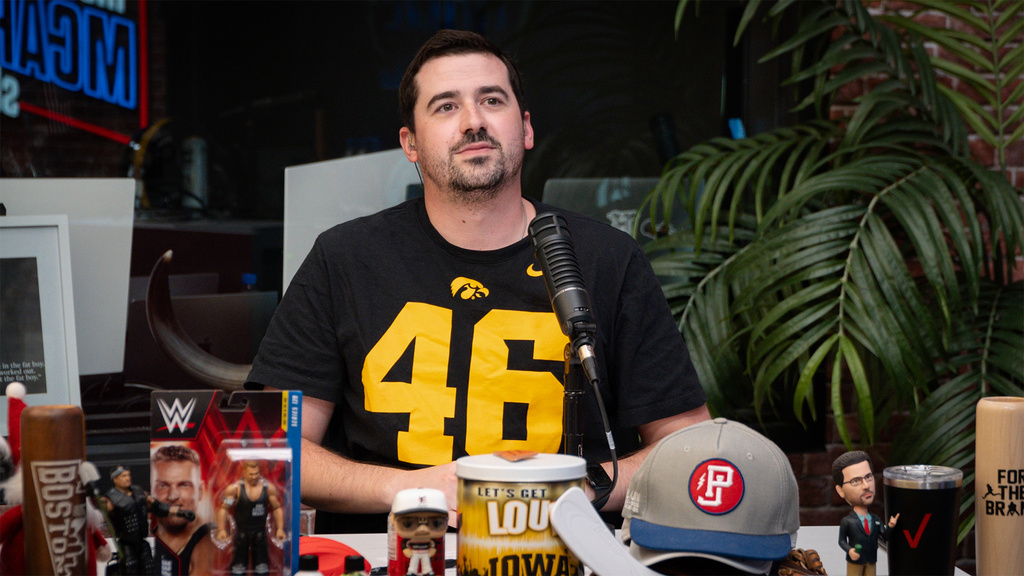University of Iowa alumnus Sam Bornstein led one of college baseball’s largest analytics staffs as a student, giving the Hawkeyes an edge on the diamond.
Story: Tom Snee
Photography: Justin Torner
Published: May 16, 2021
Sam Bornstein grew up loving baseball, but baseball didn’t love him back.
Not at first, anyway.
He played the game for years while growing up in Wheaton, Illinois, while rooting for his favorite major league team, the Milwaukee Brewers. (He has family connections in Wisconsin, which explains why he passed on White Sox or Cubs fandom.) But baseball is hard, and he was not blessed with great skills—so his major league dreams never became reality, and his on-field career came to an end after high school.
But Bornstein was always mathematically inclined, and he started paying attention to analytics, the advanced statistics that have taken over the game since Michael Lewis wrote Moneyball in 2003, focusing on former Oakland A’s general manager Billy Beane. In the book, Beane explains how he crunched numbers in new and innovative ways to make the small-market, low-payroll A’s perennial playoff contenders. As a result, statistics like wins above replacement, slugging percentage, launch angle, and spin rate have become more important than traditional statistics like batting average, runs batted in, and earned run average.
“I’ve always been an analytical person, and meshing analytics with my love for baseball made sense,” Bornstein says. “In high school, I realized this is what I was meant to do, and I’ve never looked back.”
And Bornstein loves that stuff. He came to Iowa as an undergrad majoring in business analytics and information sciences in the Tippie College of Business, receiving his bachelor’s degree in 2020. He also joined the Hawkeye baseball team first as a student manager, and then as a sophomore he became a member of its first three-member analytics unit in 2018. In 2021, as a first-year student in the Master of Business Analytics program, he led a unit that’s grown to 12 members. While analytics has been embraced at the professional level of baseball and most other major sports, it still operates only on the margins in the NCAA. Bornstein says that only a handful of Division I baseball programs have analytics staffs, and few of them have as many as the 12 analysts that the Hawkeyes use.
Bornstein and his team helped head coach Rick Heller make decisions on which player to start at which position, which reliever he should go to in the seventh, and which opponent’s hitter should be walked intentionally with runners in scoring position. His specialty is analyzing pitchers and developing scouting reports of opposing teams’ staffs.
Business analytics at Iowa
We’re not doing business analytics because it’s trendy. We’re doing it because we’re good at it. The country’s best minds in business analytics and data science teach here at the Tippie College of Business.
“It’s all about helping the athletes get better, giving the coaching staff information they need to make decisions, and finding ways to win games,” Bornstein says.
While Heller may come across as an old-school baseball guy, he says he quickly embraced analytics to help him manage the Hawkeye program once he saw that they helped not only win games but also develop players.
“We’re always looking to improve the program from the inside and find new ways to help our players develop into the best players they can, and it was clear that analytics could help with that,” says Heller. “With Sam’s maturity level and his ability to find insights in the data, we use what he tells us every single day.”
Heller says Bornstein not only dug into the advanced statistics and found numbers that will give the Hawkeyes an edge but also converted the often-complicated math into something that most players easily understand. He says pitchers like Jack Dreyer and Trenton Wallace become far better, more efficient pitchers after working with Bornstein, and former Hawkeye Cole McDonald’s embrace of analytics has made him a top pitching prospect in the Houston Astros’ system.
“Our pitchers have really blossomed with Sam’s help,” Heller says.

“We’re always looking to improve the program from the inside and find new ways to help our players develop into the best players they can, and it was clear that analytics could help with that. With Sam’s maturity level and his ability to find insights in the data, we use what he tells us every single day.”
Bornstein says his education at the Tippie College has laid a great foundation for helping to expand his ability to read the numbers and see new ways to help the Hawkeyes win on the field. Professor Kristina Bigsby’s Data Wrangling class was especially helpful, he says, particularly in helping him write better code.
Analytics has become such an important part of a baseball team’s success that most are continually beefing up their crews to find the one obscure number that will give them a slight edge. Bornstein interned in summer 2021 as a pitching analyst with Driveline Baseball, a training facility in Kent, Washington, that’s at the forefront of data-driven player development. He received a Master of Business Analytics from Iowa in December 2021; in 2022, Bornstein joined the Philadelphia Phillies organization.
Heller’s not surprised that Bornstein’s youthful dream of being in the major leagues is coming true, if not in the way he thought.
“I think he has a real chance to become an integral part of a major league team’s front office staff,” he says.



